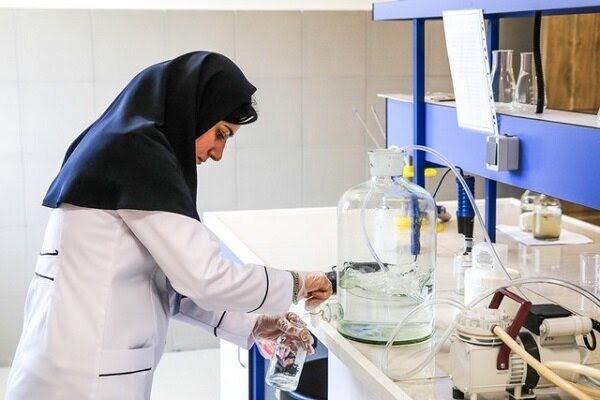National network for elite women, female technologists to be launched

TEHRAN –A national network is planned to be launched with the aim of empowering elite women and female technologists in the country.
On July 14, the Vice Presidency for Science, Technology, and Knowledge-Based Economy organized a meeting attended by more than 30 technologist women including university professors, CEOs of companies, as well as experts in fields of oil and gas, artificial intelligence, medicine, research, technology, and Telecommunications.
During the meeting, the participants discussed challenges faced by women experts in the mentioned fields, IRIB reported.
They also explored different levels of goals of the network such as enhancing women’s technical capabilities, providing targeted and fair contributions, as well as creating transnational connections, and promoting their technical activities.
Iranian women among top 1% most cited researchers
Some 135 out of 938 Iranian researchers who were recognized among the world's top one percent most-cited researchers in 2023 were female scholars. In 2023, 938 top researchers affiliated with Iranian organizations were identified, which showed a 12 percent increase compared to the previous year.
Over the past decade, the number of highly-cited researchers in the country has been growing. Women are an important part of society, playing an important role in the development of human societies, IRNA quoted Ahmad Fazelzadeh, the head of the Islamic World Science and Technology Monitoring and Citation (ISC) Institute, as saying.
One of the indicators of scientific authority is the number of highly cited scientists in each country, and Iranian women researchers have a special place in the field of scientific authority at the national and international level, Fazelzadeh added.
ISC’s main responsibilities are to introduce highly-cited researchers and to provide the possibility to identify and introduce elite researchers and scholars. According to its missions, ISC is responsible for monitoring the status of science and technology in Iran, Islamic Countries, and the world.
One of the indicators of scientific authority is the number of highly cited researchers in each country. Among Iranian highly-cited researchers, women are also present and have played their part in the scientific authority of Iran. Using the data indexed in the ISC database, ISC identifies highly cited Iranian researchers in Human Sciences, Social Sciences, Art, and Architecture.
In the latest announced list, highly cited researchers have been introduced in the period of 10 years (2011-2021). The criteria for selecting researchers in this list is the number of citations made to their scientific productions.
According to the recent report of ISC, in the list of one percent of researchers in the world which was based on the Essential Science Indicators (ESI) database, a total of 135 Iranian female researchers were recognized in the areas of Agricultural Sciences, Clinical Medicine, Biology, Biochemistry, Chemistry, Pharmacology and Toxicology, Neuroscience and Psychology, Engineering, Material Science, Psychiatry/Psychology, Computer Science, Interdisciplinary, Social Science, generalities and some have obtained the necessary points even in several fields.
Fazelzadeh went on to say that according to the Stanford University List which was conducted by a number of researchers from Stanford University and the Elsevier Institute via analyzing the data of the Scopus database, 60 highly cited Iranian female researchers were among the top two percent in the world (service performance) in eight subject areas including Clinical Medicine, Chemistry, Biomedicine, Strategic Technologies (Artificial Intelligence, Nanotechnology, etc.), Agriculture, Fisheries and Forestry, Physics and Astronomy, Information and Communication Technology, and Engineering.
316 female Iranian highly-cited researchers were among the top two percent of the world (one-year performance) in 14 subject areas of Clinical Medicine, Biomedicine, Chemistry, Engineering, Agriculture, Fisheries and Forestry, Strategic Technologies (Artificial Intelligence, Nanotechnology, etc.), Information and Communication Technology, Earth and Environmental Sciences, Physics and Astronomy, Environment, Design and Construction, Public Health and Health Services, Biology, Social Sciences, Communication and Textual Research have obtained the necessary points.
Some 46 female researchers in 13 subject areas of Business, Management and Accounting, Geographical Sciences, Psychology, Social Sciences, Knowledge and Information Science, Language and Linguistics, Educational Sciences, Economic Sciences, Sociology and Political Sciences, Language and Literature, Historical Sciences, Theology and Islamic Studies and other areas gained the needed points.
MT/MG
